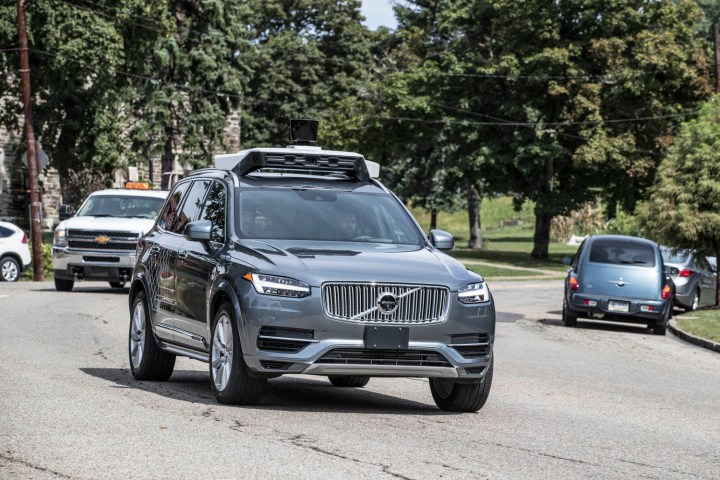
Uber is moving to restart the testing of self-driving cars on public roads roughly eight months after a fatal crash involving one of its vehicles. The ridesharing giant has asked the state of Pennsylvania for permission to resume testing, reports Automotive News. Uber has also submitted a voluntary report to the National Highway Traffic Safety Administration (NHTSA) detailing safety improvements.
Pittsburgh was the first city where Uber deployed its autonomous cars. Testing was later expanded to Arizona and California. But in March one of the test vehicles struck and killed pedestrian Elaine Herzberg while she was crossing a street in Tempe, Arizona — the first known fatality involving a self-driving car. Uber subsequently shut down testing.
In June, Tempe police said the human backup driver was streaming a television show on her phone at the time of the crash, and called the incident “entirely avoidable.” The National Transportation Safety Board (NHTSB), which is conducting an ongoing investigation into the crash, said the factory-installed autonomous emergency braking system in Uber’s Volvo XC90 test vehicle had been disabled, something Uber has said was done to avoid erratic vehicle behavior.
In its safety report, Uber said it will address some of these issues. Cars will now be tested with two people onboard, and the company adding that it will commit to better training and to limits on work hours. The report also said Uber will use third-party data monitoring, and that factory autonomous emergency braking systems will remain active on test cars.
Uber said a key recommendation from an internal review following the crash was to improve the “overall software system design” for its autonomous cars. The company claims to have improved “system latency,” which Uber said will allow cars to detect obstacles and react more quickly.
In July, Pennsylvania’s Department of Transportation issued new guidelines for autonomous-car testing, requiring companies to submit more information about their testing. The state said it would review applications from companies and send letters to those it authorizes to test on public roads. Uber said it would not resume autonomous testing until it received one of these letters, although cars have returned to the streets of Pittsburgh in manual mode.
While Uber has been forced to reevaluate its self-driving car program in the wake of the crash, rivals have moved forward. Waymo has said it will launch a commercial ridesharing service in Phoenix, Arizona before the end of this year, and General Motors has not wavered from previously discussed plans to begin building autonomous cars with no manual controls in 2019. In a blog post, Uber CEO Dara Khosrowshahi said he is happy to take things slowly.
“For Uber, this is not a sprint: self-driving and human-driven vehicles will coexist on roadways for decades to come.”

